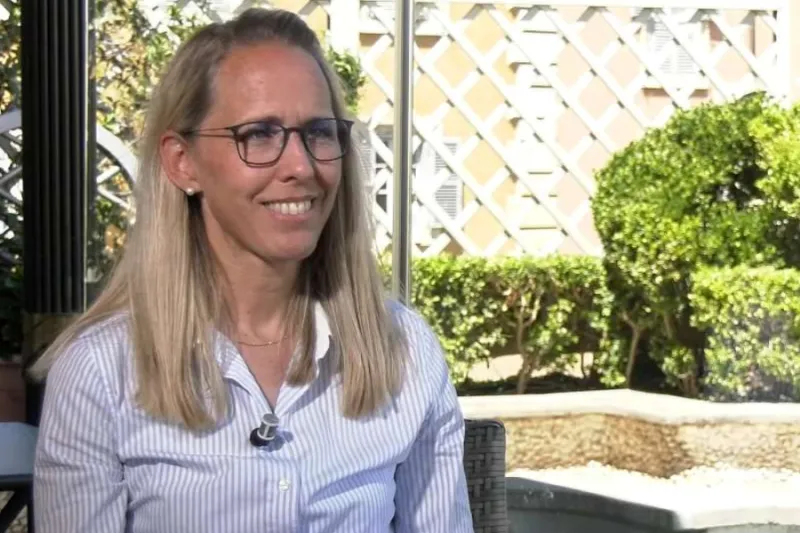
Bonn, Germany, Jun 15, 2022 / 06:15 am (CNA).
A theologian has resigned from the German “Synodal Way” forum on sexual morality.
Katharina Westerhorstmann told the Catholic television station K-TV that she left the forum “not only because of time constraints, but also because of the concrete work in the synodal forum itself,” reported CNA Deutsch, CNA’s German-language news partner.
The Synodal Way is a controversial multi-year gathering of German bishops and lay people to discuss four main topics: the way power is exercised in the Church; the priesthood; the role of women; and sexual morality.
Westerhorstmann teaches theology at Franciscan University of Steubenville’s campus in Austria. She will remain a member of the “Synodal Way” and is still allowed to participate in debates during plenary assemblies.
She said that the synodal forum’s direction was clear from the beginning. When a draft text had been presented, she said, her proposals for amendments “were highlighted in color because they did not fit the predetermined direction.”
Speaking to katholisch.de, the German bishops’ official news website, Hendrik Johannemann disputed Westerhorstmann’s account. Johannemann is a member of the synodal forum on sexual morality and came out as homosexual during the “Out in Church” campaign on German television earlier this year.
When changes were made to texts, all “amendments that were not along the lines of the original text” were highlighted in color, said Johannemann. These amendments could have been either “significantly more progressive” or more conservative, he added.
Westerhorstmann pointed out that she and other members of the synodal forum, including Bishop Stefan Oster of Passau in Bavaria, had previously tried “to explain more precisely our view of man, which corresponds to the current teaching of the Church.” But the proposed document was not adopted.
The synodal forum on sexual morality has introduced several texts to the plenary assembly of the Synodal Way. They have already been voted on once, but face two additional rounds of debate before a final vote.
One text, “Celebrations of blessing for couples who love each other,” says: “The synodal assembly calls on the bishops to officially allow in their dioceses celebrations of blessing for couples who love each other and want to commit, but to whom sacramental marriage is not available or who do not want to enter into it. This also applies to same-sex couples on the basis of a re-evaluation of homosexuality as a normative variant of human sexuality.”
In 2021, the Vatican’s Congregation for the Doctrine of the Faith reaffirmed that the Church does not have the authority to bless homosexual relationships.
Another document introduced by the Synodal Way forum, “Magisterial reassessment of homosexuality,” calls for a change in Catholic teaching on homosexuality, saying that sexual orientation is “inseparable” from every human being. Sexual orientation “is not self-selected and it cannot be changed,” the text argues.
Accordingly, it demands a change to the Catechism of the Catholic Church, which says that the Church “has always declared that ‘homosexual acts are intrinsically disordered.’ They are contrary to the natural law. They close the sexual act to the gift of life. They do not proceed from a genuine affective and sexual complementarity. Under no circumstances can they be approved.”
If you value the news and views Catholic World Report provides, please consider donating to support our efforts. Your contribution will help us continue to make CWR available to all readers worldwide for free, without a subscription. Thank you for your generosity!
Click here for more information on donating to CWR. Click here to sign up for our newsletter.




My first reaction was to encourage participants like her to stay and fight, but the reality is that for all of the theater of dialogue and collaboration, the goals of the synod are and have been fait accompli. It would be a tragedy for this bright woman to be associated by name with the conclusions of this farcical occasion of institutional gaslighting.
Katharina Westerhorstmann is among an increasing number of lay Catholic theologians, writers who perceive an agenda [actually long underway] of a change in moral theology, for Westerhorstmann, a clear implementation of an agenda that dismisses contrasting dialogue. Larry Chapp in a recent essay titles it this way, “It’s the Moral Theology stupid”. Nothing is explicitly changed in respect to pronounced doctrine, rather what is changing and becoming explicit in the German Way agenda is personal moral behavior, and as Chapp says affecting the entire Church in his essay in NCReg and a recent one here a form of proportionalism that tends to neutralize [in effect obviate] intrinsic evil.
Mentioned previously a host of key appointments significantly that of Cardinal Hollerich reveal Pope Francis perceives this as a remedy so to speak for a rigid legalism. Although that proposes the anomaly that rigid legalism has not been the problem decimating Catholic practice. Exactly the opposite prevails, widespread insouciance among clergy adversely affecting laity. Then why beat a horse if it’s gasping its last breath?
What comes to mind is what papal consigliere Fr Antonio Spadaro SJ said years earlier, that the intention is to implement radical change so ingrained within Church and culture [in imitation of what prevails culturally] that it will be impossible to reverse. If and when the next conclave arrives it may well be the most momentous in history. For the faithful the lines of battle are becoming more clearly defined.